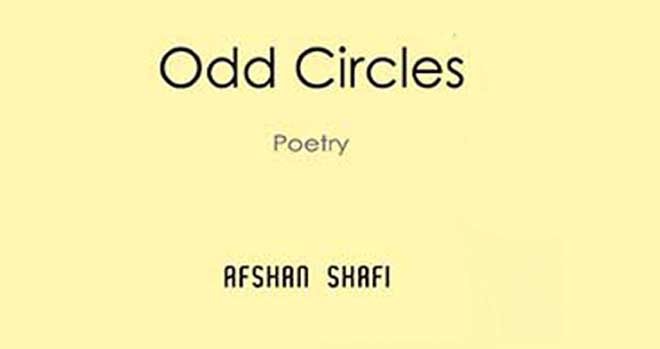
A debut book of poems that hint at an inner landscape observed with a Proustian single-mindedness and expressed through some beautiful, often eccentric, phrases

Pakistan has produced a sizeable number of fiction writers who employ English as their medium but the number of Pakistani poets who compose in English is not a large one. Taufiq Rafat, Daud Kamal, Alamgir Hashmi, and Zulfikar Ghose are the most established names in Pakistani poetry in English. Out of these, perhaps Taufiq Rafat will be able to withstand the implacable turns of history. Taufiq Rafat is also going to be remembered for his translation of Bulleh Shah into English.
The present is, however, a different story. Almost all private schools and universities offer courses in Creative Writing and many fresh graduates of international university programmes in literature and writing have come back and are contributing to the local world of letters. The fact that they are choosing to write in English may have nothing to do with imperialism but with a new global reality in which English is the lingua franca of the world.
If Ali Akbar Natiq can feel more empowered after his Urdu short stories are translated into English and published as What Will You Give For This Beauty by Penguin, young Pakistani writers are going to use English for transcending and bypassing local strictures and sensibilities. The world is as much theirs as anyone else’s.
All this comes to mind when one looks at the debut book of poetry titled Odd Circles by Afshan Shafi, whose poetic sensibility has been influenced a great deal by Sylvia Plath and Frank O Hara. The book contains 41 poems that hint at an inner landscape observed with a Proustian single-mindedness and expressed through some beautiful, though often eccentric, phrases which remind the reader of Imagist American poets.
The book does not exhibit any shallow earnestness to make any message explicit for the reader. Reading the poems is a liberating experience because if the medium is the message then one must enjoy the medium. The language is erudite and the sensibility arrives fully developed even though it sometimes appears to be lacking the directness of purpose that one can find in, for example, Ted Hughes’ poetry.
For Afshan Shafi, each poem begins with an image or a set of images which are then explicated through quirky phrases. The poet has an excellent command over unusual words and employs them to her advantage. The effect of reading this volume can be instructive for a writer who wants a break from clichés.
It is refreshing to read of "thinness illuming," "staccato lungs," "her annexed shadow," "the masonry of his belly," "a bluff of cerebrum," "abandoned brilliance," and "sluice of a diminished heart."
This volume indicates that there are great things to be expected from the poet in her future work when the seduction of all the possibilities of language will subside and give way to the serious task of conveying a fully honed sensibility.
According to Harris Khalique, there are two types of Pakistani writers of English: one: those who are at home anywhere in the world and Pakistan is just an accident of birth, place, and circumstance for them; two: those who have created their own syncretic aesthetics by using local and global sources and created a unique contemporary Pakistani sensibility for the postmodern times. It is for the readers to decide which category to assign to the writer under review but for this they must experience the work of this poet themselves firsthand.
If this volume is taken a sign of things to come, one should also be expecting great poetic works from those writers who have not published any monographs yet. Among these are the works of Ramsha Ashraf, Mahboob Ahmad, and Zakia Rubab Khwaja. Ramsha Ashraf has so far only circulated her poetry on the social media and Zakia Rubab Khwaja has published in different literary magazines and online publications.
All these poets in English convey that Pakistan is very fertile in the creative areas of life and deserves a better image globally. The writers and poets of Pakistan, writing in English and local languages, are going to be the surgeons who will beautify the image of Pakistan.